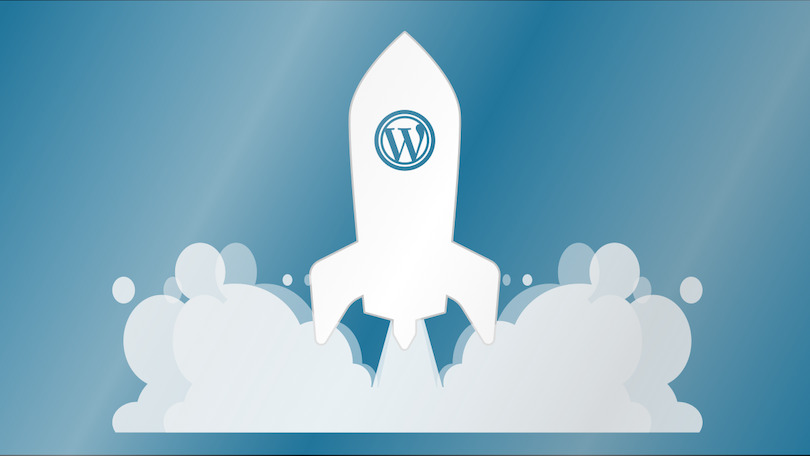As the world becomes increasingly digital, website performance has become an essential aspect of running a successful online business. A slow, sluggish website can lead to a poor user experience, decreased search engine rankings, and lost revenue. That’s why optimizing your website’s performance is crucial.

If you’re using WordPress to power your website, there are several things you can do to improve its performance. In this article, we’ll explore why performance matters, how to measure your website’s performance, and the best ways to improve it.
Why Performance Matters?
Website performance has a direct impact on user experience, which in turn affects your business’s bottom line. According to a study by Akamai, a one-second delay in page load times can lead to a 7% decrease in conversions. Additionally, Google has indicated that page speed is a ranking factor, which means that a slow website can hurt your search engine rankings.
But beyond the impact on conversions and rankings, website performance also affects user engagement and satisfaction. A website that loads quickly and is easy to use is more likely to keep visitors on your site, encourage them to explore more pages, and return in the future.
Measuring Website Performance
Before you can improve your website’s performance, you need to measure it. There are several tools you can use to do this, including:
- Google PageSpeed Insights: This tool analyzes your website’s performance on both desktop and mobile devices, providing suggestions for improvement.
- GTmetrix: This tool provides a detailed report on your website’s performance, including page load times, page size, and the number of requests made.
- Pingdom: This tool allows you to test your website’s performance from multiple locations, providing a global view of your website’s speed and load times.
Once you’ve measured your website’s performance, you can identify areas for improvement and take action to make your site faster and more user-friendly.
Tips to Improve your Website Performance
Here are some tips and tricks to help you improve your WordPress website’s performance:
Choose a Fast Hosting Provider
Your hosting provider plays a significant role in your website’s performance. Choose a hosting provider that offers fast servers, good uptime, and optimized WordPress hosting. Shared hosting can be a cost-effective option, but it can also lead to slower load times due to resource sharing. Consider upgrading to a Virtual Private Server (VPS) or dedicated hosting if you have a high-traffic website or need more control over your server resources.
How to Choose the Right Hosting Provider for Your Website: A Comprehensive Guide for 2023
Use a Lightweight WordPress Theme
Your website’s theme can also impact its performance. Choose a lightweight theme that is optimized for speed and doesn’t have unnecessary features or code. Avoid themes that rely heavily on custom scripts or plugins, as these can slow down your website. Consider using a premium theme that has been optimized for performance or a framework like Genesis that is known for its speed and efficiency.
Optimize Your Images
Images are a crucial part of many websites, but they can also be a significant contributor to slow load times. Make sure to optimize your images for the web by compressing them and reducing their file size. You can use tools like WP Smush or EWWW Image Optimizer to automatically compress images on your website.
Minimize HTTP Requests
Each file on your website, including images, scripts, and style sheets, requires a separate HTTP request. Minimizing the number of requests can significantly improve your website’s performance. You can do this by combining multiple files into a single file or using a content delivery network (CDN) to distribute your content across multiple servers.
Use Caching
Caching allows your website to store frequently accessed data, such as HTML pages and images, on a user’s device or server. This reduces the number of requests your website needs to make to the server and can significantly improve page load times. You can use a caching plugin like WP Super Cache or W3 Total Cache to enable caching on your website.
Minimize Plugins
While plugins can add functionality to your website, they can also slow it down. Each plugin you add requires additional code and resources, which can increase page load times. Make sure to only use plugins that are essential to your website’s functionality and regularly audit your plugins to remove any that are no longer needed.
Optimize Your Database
Your website’s database stores all of your content, including posts, pages, and comments. Over time, your database can become bloated, which can slow down your website. You can optimize your database by removing unnecessary data, optimizing tables, and running regular maintenance tasks. Plugins like WP-Optimize and WP Sweep can help you automate these tasks.
Use a Content Delivery Network
A content delivery network (CDN) distributes your website’s content across multiple servers, reducing the distance data needs to travel and improving load times. CDNs can also help protect your website from DDoS attacks and other security threats. Some popular CDN providers include Cloudflare, MaxCDN, and Amazon CloudFront.
Enable Gzip Compression
Gzip compression is a way to compress your website’s files, reducing their size and improving load times. Most modern browsers support Gzip compression, so enabling it on your website can have a significant impact on performance. You can enable Gzip compression in your website’s .htaccess file or using a plugin like WP Performance Score Booster.
Monitor Your Website’s Performance
Finally, make sure to regularly monitor your website’s performance to ensure that it is running smoothly. Use tools like Google Analytics to track user behavior and performance metrics, and set up alerts to notify you of any significant changes or issues. Regular monitoring can help you identify performance issues early and take action to address them.
Conclusion
In today’s fast-paced digital world, website performance is more important than ever. A slow, sluggish website can lead to lost revenue, decreased search engine rankings, and a poor user experience. Fortunately, there are many things you can do to improve your WordPress website’s performance, from choosing a fast hosting provider to optimizing your images and database.
By implementing the tips and tricks outlined in this article, you can significantly improve your website’s speed, load times, and user experience. Regular monitoring and optimization can help ensure that your website is running smoothly and providing the best possible experience for your visitors.
